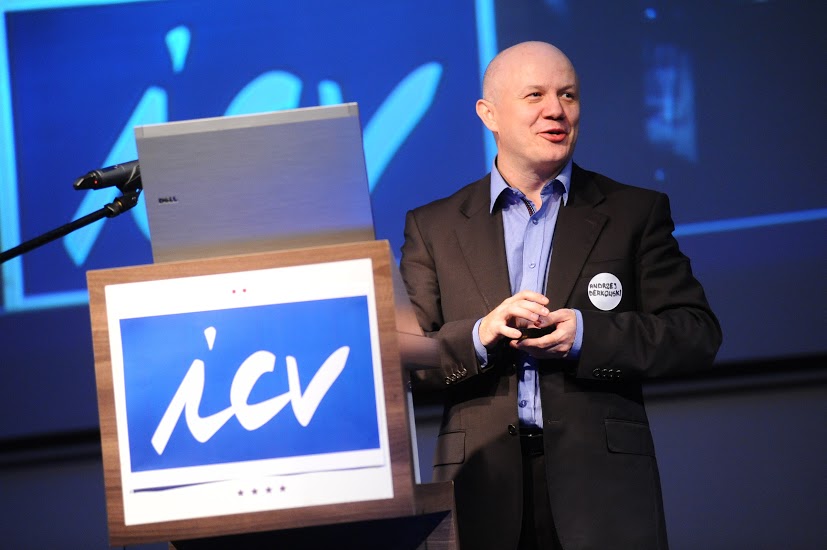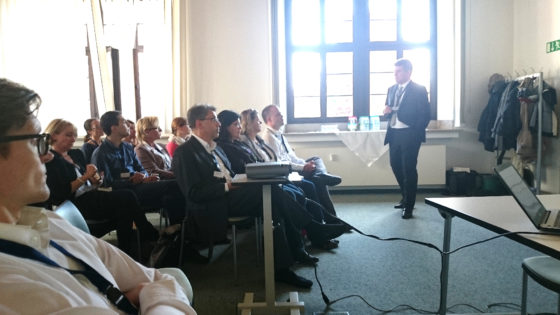
Interview with Andrzej Derkowski, a long-term leader of the work group Toruń, as well as, in the past, the Delegate Poland, Director of Controlling at Neuca Group – leader in the wholesale distribution of pharmaceuticals in Poland
Every year you take part in ICV congresses in Poland, you also follow controlling trends. What is the difference between the position of the controller in Poland and Germany?
From my observations, it appears that in German companies the controller’s position is higher. The controller is there, in fact, an important member of the team who not only supports but also participates in the decision-making process. In Poland controllers still play the role of some kind assistants, people for reports. And yet the controller can bring to cooperation more than just a table in Excel!
Fortunately, the situation is changing.
Are Polish controllers slowly becoming business partners of the board? In what situations?
I can see it very clearly in the planning process: some time ago, controllers of individual business areas prepared certain planning standards, but then they actually only collected data, verified it from the technical side and passed it on. At the moment we are getting closer to the German model: in the planning process, the role of the controller is based on ongoing direct cooperation with a managing team who plan activities and budgets for the next year – not only as technical assistance and source of numerical data, but also as advisers who tell you what to look for, remind you of certain risks and bring valuable ideas. The controller not only gives a sense of security and is an important member of the team, but is also responsible for preparing the business concept, achieving business goals and budgets. Controller is a business partner.
Controller is also supposed to be a person who not only has a different perspective, but also sees more broadly what is important for the implementation of individual goals, opportunities and risks. For example, the aspect of the efficiency of supply preparation for customers, important in our business [Neuca]. How effective this process will be is not only a matter of efficiency of logistics processes in distribution centers, but also the issue of defining and implementing the processes of accepting and servicing orders to customers. Controller must understand these dependencies and the impact of certain elements of the process on the efficiency of other processes – only then controller is able to monitor and analyze the effectiveness of these processes and prepare accurate and implementable recommendations. The preparation of a static report that reflects only the historical situation is insufficient today, the managers expect a much larger, different support from the controller.
So where can you get inspiration for creating such support tools?
In the Region Toruń – Bydgoszcz we recently had an ICV work group meeting with Walter Schmidt. We talked about modern concepts of management oriented on creating value for the organization and the role of controller in this dynamically changing management concept. It was a time of good discussions moderated by Walter and many reflections that led us to change the approach to how we operate, how we support managers. However, what I have in memory: if people in the controlling department focus on reporting and preparing information about deviations, this is not controlling yet. Controlling begins in the next step, when we know the implementation of budget plans, we have information about what and where the deviations were created. Controlling is cooperation with the business, analysis of diagnosed problems, risks, as well as conclusions and action recommendations. The role of controller is to ensure that the business achieves goals, to care for the effectiveness of using resources for their implementation and to look at these issues (goals and resources) from a short- and long-term perspective. The perspective of customers, employees, seeing people above numbers, looking not only through the prism of profit, but also development.
In Poland, unfortunately, controlling processes too often end with reporting and / or reporting is the main activity of the controller.
How to change this approach to controlling in Poland? Where to get ideas and inspiration?
In my opinion, the competence of the controller is very important – almost everyone can prepare a table in Excel, but not everyone understands business, can create new perspectives and develop a certain innovative concept or inspire managers to change. This is incomparably more difficult. It is not only a matter of knowledge and experience, but also some developed methods, inspirations that you can draw, for example, from Controller Congresses. For me, such meetings as the Controller Congress are important in principle for one reason, i.e. ideas and inspirations, which, when I return to Poland, I analyze in terms of implementation in my organization. Last year’s Controller Congress in Munich provided me not only with new inspirations but also made me look at some familiar topics from a completely new perspective – it is priceless.
For example, what inspirations did you bring?
In our company, we place emphasis on the business forecasting process. Important is not only whether we achieve our goals after the first quarter, but also if we keep this direction and fulfil goals at the end of the year. In this approach, it is important to discuss current activities in close cooperation with the managers of businesses. This is the only way to identify risks, achieve goals and develop activities that can support achieving goals. Two years ago we had a specific concept of action, a year ago – we have slightly changed this concept, and today we are changing it again based on some thoughts and inspirations. We are constantly looking for ideas on how to work better. Unfortunately, you cannot change everything in 180° within a few months… With every change in the company there is a change in the team – employees have to keep up with every change. And my inspirations and searching for ideas begin in ICV work groups and during the Congress in Munich.
Was there something that surprised you during the Congress? Did any of the lectures particularly inspire you?
The issues discussed during the speech of a member of the BMW Management Board. It is a company manufacturing cars from the luxury / premium segment and it is obvious that quality issues are set at a very high priority. In this context, very interesting was BMW approach to ensure and improve the efficiency of the processes and how BMW manages to reconcile it with the high quality of manufactured products. Presentation of the role of BMW controlling in the process of improving the operation efficiency was, in my opinion, a non-standard and therefore very interesting and inspiring.
How would you rate the translation during the Congress? Did you keep up with themes freely?
First of all, I think it’s a genius idea that the Congress is also in English. It was the first Congress fully translated into English.
I had the opportunity to participate in Congress at least 2-3 times before, but the lack of German translation was always a barrier for me. After getting information that the Congress is held also in English, I immediately realized that I must be there. And I was. I think it was a time well spent. Translations into English at the Congress had very high quality and even those who do not have any daily contact with English as I do, can easily understand the content of the presentation during the Congress.
Last question: how to convince the chairman to accept the Congress in the budget?
In my opinion, this is not a matter of this particular Congress, but a matter of a certain concept of controlling and a certain vision in the organization. If controlling in the company is only for the preparation of reports, it will be difficult to convince the chairman to bear the cost of participation in the Congress. But if we manage to convince the management that controlling is more than just producing reports, that controlling is a place where a sustainable competitive advantage can be built, the question of investing in controller development will cease to be a problem…
If the CEO sees the potential of controlling, understands that controlling can have a significant impact on the decisions quality in the organization and thus the company’s prosperity, then the controller will not have to convince anyone.
Therefore, controlling should create added value in the organization and co-create a competitive advantage. We should change the perception of the controller’s role and the expectations of the controlling function in the company.
In my opinion, there is no better opportunity to acquire knowledge, exchange experiences and seek inspiration than the Congress in Munich, where the best controlling concepts are presented and leading controllers from all over Europe meet.


